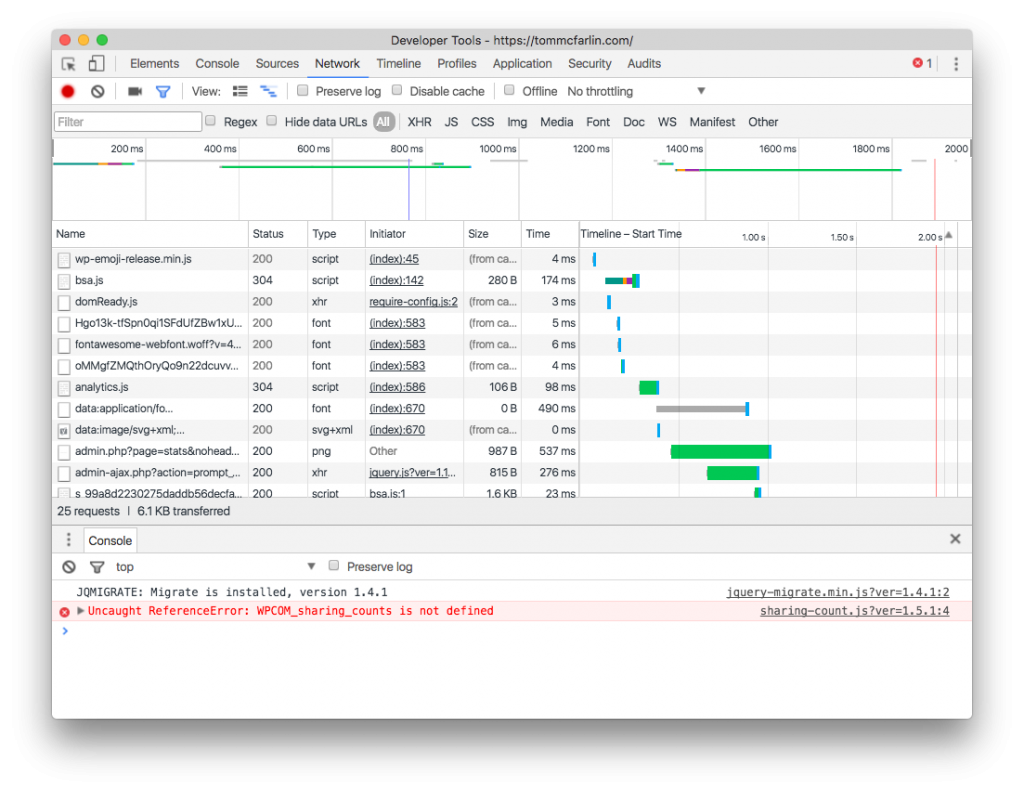WordPress requests (that is, page requests) are something that can become a bit of a hot topic for those who are concerned about the performance of web applications.
Case in point: Last week, I was having a conversation with a friend who, at one time, was doing a lot of work with WordPress and has since moved into another industry of web application development.
During the conversation, he made the following comment:
And the fact that it doesn’t min / cat files instead of [25] network requests is just plain dumb. And when a person has 23 plugins, that’s 26 files not even including the theme and core.
I adjusted the number above to reflect how this particular site performs with my current theme and my [admittedly small] set of plugins.

25 Wordress requests for all resources for this site alone (along with a JavaScript error).
And though the comment is meant to be humorous and a bit facetious, I don’t think it’s worth dismissing.
In fact, I believe that it’s something worth considering even if we’re simply building things on top of WordPress (versus working on WordPress core).
Continue reading



